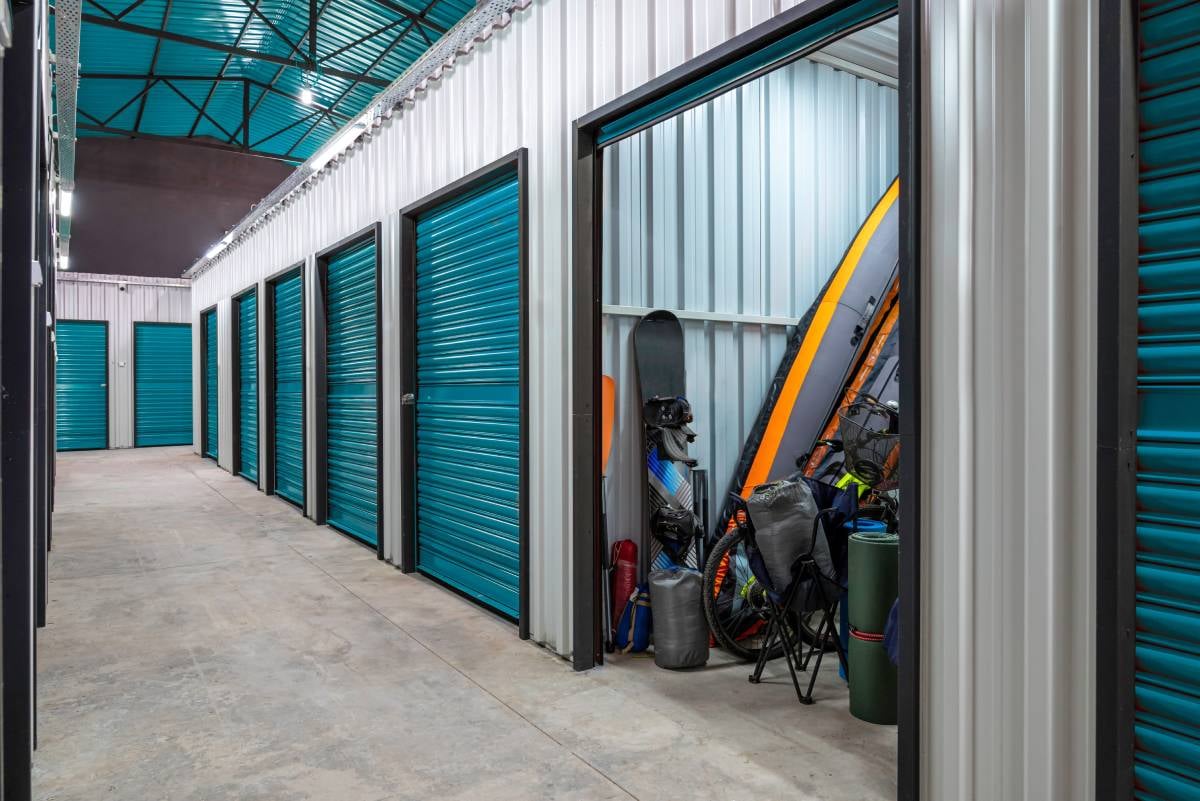Knowledge Center
Answering Your Questions About Self Storage Insurance Coverages
As a self storage business owner, you're well aware that your customers entrust you with their most prized possessions. That’s true whether it’s family heirlooms and sentimental furniture or important business documents. Having the proper self storage insurance in place can add another layer of protection for your business and your customers.
Today, we navigate the world of self storage insurance to answer your questions such as coverage and costs. By the end of this blog, you will have a better understanding of your options so you can protect your business and gain a competitive edge by bolstering your facility’s credibility.
Self Storage Insurance 101
Self storage is a fairly straightforward business. Owners like yourself rent out space for others to store their goods.
Though simple at first glance, self storage operations face a myriad of unique and pressing risks. These range from weather-related events and theft to property damage and cyber attacks. All of these threats have the potential to cause hundreds of thousands of dollars in damages, putting your business at risk. And while you can prepare for them, many of these threats are unpredictable.
Such a unique business model requires a unique approach to insurance coverage. Enter self storage insurance.
A tailored self storage insurance plan provides owners with the right coverages at competitive premiums to fit their unique needs. At World Insurance, we have a list of the updated top self storage insurance policies that every self storage owner should undoubtedly consider adding to their insurance portfolio moving forward.

Do Storage Units Have Insurance?
Self storage insurance is not only essential for protecting your business, it can also give you a competitive edge. Potential customers want to know if their belongings, often including high-value items, are protected. Beyond offering climate-controlled units and investing in a top-notch security solution, self storage insurance is an essential component to provide customers with peace of mind.
The experts at Forbes recommend that customers explore stand-alone insurance options that have primary coverage. In some cases, storage companies require storage unit insurance.
While it is still up to the individual to insure their personal unit, having comprehensive protection for your business goes a long way in improving trust.
Do Storage Facilities Have Insurance?
As is true with any business, self storage facilities should have insurance. However, the type of coverage can vary depending on several factors. This includes the risks the facility is prone to, the nature of the storage facility, and the types of items stored there.
That being said, there are some common coverage options that every facility should consider having:
- Property Insurance: Perhaps the most essential self storage insurance coverage, this includes protection from fires, floods, and damages to the business and personal property.
- General Liability Insurance: This protects your insurance facility against losses from claims for bodily injury or property damage made by any third party
- Loss of Income Insurance: Protects your business from direct physical loss or damage to your storage facility. For instance, if you had to close your facility due to a natural disaster, this would ensure you are compensated.
- Wrongful Sale Liability Insurance: Protects against lawsuits and penalties resulting from the sale of wrongfully sold property. An example would be if your tenants stored items that were sold unlawfully and they file a claim.
- Customer Goods Legal Liability Insurance: This is the type of additional coverage that tenants are often interested in since it protects them from the cost of damage to their stored goods. This includes damage to the building, theft, and fire. It provides peace of mind for tenants and also protects your facility from expenses should their items be damaged.
- Workers’ Compensation Insurance: Any facility that has on-site employees should have this type of coverage, which pays for lost wages due to injuries or illnesses.
- Cyber Liability Insurance: Self storage facilities are not immune to cyber attacks. This policy covers you for losses that occur due to a cyber attack or data breach. This is especially important since storage facilities hold important customer data.
Learn more about the insurance options for storage facilities.
How Much Is Self Storage Insurance?
Ultimately, the cost of self storage insurance depends on several factors. These include, but are not limited to:
- Size of Your Facility: Larger units hold more items and are therefore deemed higher risk and command higher premiums.
- Value/Type of Items Stored: Insurers will also take into account the total value of the items stored at your facility. More valuable items equate to higher premiums. The same is true for the type of items stored. Antiques and electronics, for example, are deemed higher risk because of their value and fragility.
- Deductibles: If you choose a policy with a higher deductible, you may benefit from lower monthly premiums. However, you will have to pay more out of pocket in case of a covered event.
- Location: As with any insurance coverage, costs are determined by location. If your facility is in an area that is prone to natural disasters, premiums will likely be higher.
- Security: Your facility should invest in security features. Not only are they ideal for protecting your property, but they may also help your quality for lower insurance rates. Gated access, alarm systems, and 24/7 surveillance are a good place to start.
At World Insurance, we understand that your self storage business has unique risks that require specialized protection. Our professionals develop custom insurance portfolios that provide the right coverages at competitive premiums to fit your unique needs, and you get exceptional service from an advisor committed to the self storage industry.
Learn more about your options for self storage facility insurance today.
This article is not intended to be exhaustive, nor should any discussion or opinions be construed as legal advice. Readers should contact legal counsel or an insurance professional for appropriate advice.
We’re ready to help you
protect what matters most
Discuss your options for protecting your reputation and your business.


